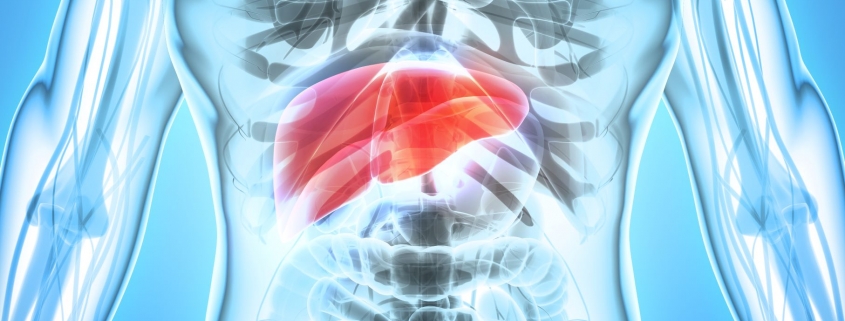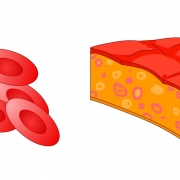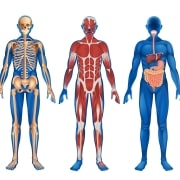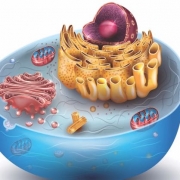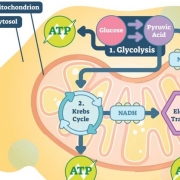To Know It is to Love It—Facts About the Liver
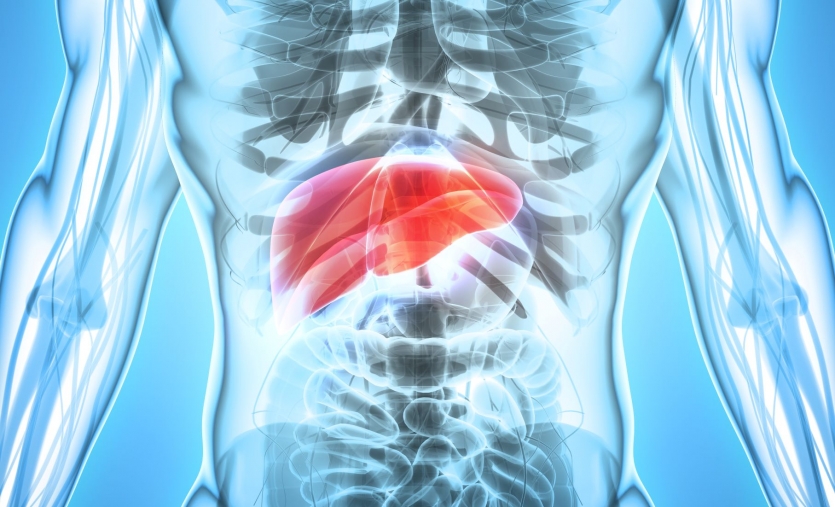
Your heart pumps. Your kidneys filter. Your stomach digests. Your brain runs the show. But what about your hard-working, multitasking liver? It doesn’t receive the respect or admiration it so rightly deserves. Learning facts about the liver is the best way to awaken appreciation for your most under-the-radar organ.
This list of 27 facts will finally shine a much-deserved spotlight on the underrated organ’s anatomy, function, and how to support liver health. At the end, you can school your friends and family with facts about the liver that goes beyond the basics to spread the liver love around.
Anatomy Facts About the Liver
- Skin wins the battle of size for organs overall. But your liver takes the title for largest internal organ—and, weighing in around three pounds, is second overall.
- You aren’t alone in having a liver. Living things with spinal cords (vertebrates) also have livers. All of them. It’s that important.
- The liver looks like it has a larger head section and a smaller tail. But it can be further divided into thousands of lobules—tiny segments with their own ducts.
- Your liver has the capacity to hold 10 percent of your body’s blood. It doesn’t always have that much, but it does go through a lot—handling about 1.5 liters every minute.
- The liver isn’t just an organ—it’s also a gland. That’s because it secretes bile into the intestines.
- As long as you have a quarter of your liver left, the organ can fully regenerate to original size and regain full function. This is more of an evolutionary necessity than a neat trick. And it’s the reason liver donors can give someone half their liver and survive.
- Too much fat is bad for your liver. But it’s normal for this important organ to be comprised of about 10 percent fat.
Liver Facts to Explain the Organ’s Many Important Jobs
- Speaking of fat, one of the hundreds of jobs the liver has is metabolizing fat. This is done through the bile produced in the liver.
- Your liver can make up to a liter of metabolism-inducing bile every day.
- Bile also plays a role in metabolizing your other macronutrients—proteins and carbohydrates. So, the liver’s bile production is key to breaking down a large swath of your diet and making sure it can be used to support your overall health.
- The liver is more than a production facility and metabolism force. It also provides a warehouse for a variety of important nutrients—including glycogen (stored glucose), iron, copper, and a variety of fat-soluble vitamins.
- What you put in your body is filtered by your liver. It takes out and deals with dietary nutrients, toxins, drugs, alcohol, and a few hormones.
- Besides filtering, the liver has many functions connected to blood. Your body’s ability to form blood clots—with the support of vitamin K—is aided by the bile produced in your liver. It also:
-
- creates an important protein in blood serum (albumin)
- pieces together a hormone involved in blood pressure regulation (angiotensinogen)
- handles bilirubin from broken down hemoglobin
- Immunity is helped out by the liver. Your two types of immune protection—innate and adaptive—are both supported by processes in your second largest organ.
- Your liver acts as a switching station that determines whether the body’s nutrient intake—delivered through the portal vein—is stored, further processed, placed in a detoxification process, or sent out as waste.
- Detox is probably the first place your mind goes when you think of your liver. It deals with detoxifying the substances you take in with a two-phase approach. The first liver detoxification pathway (Phase I) neutralizes compounds, while Phase II deals with byproducts of the first phase and makes substances water soluble for removal.
- Glutathione is one of the most important antioxidants in your body. You synthesize it and can find glutathione throughout your body. But it’s up to 10 times more concentrated in the liver. That’s because it plays a role in Phase II detoxification.
Facts to Help You Maintain Your Liver Health
- If you can call organ meats popular (and that depends on your culture and preferences), liver would top the list. Edible animal livers are packed with protein, iron, and various vitamins.
- Surprise—what you eat has a lot of impact on the organ that deals with your dietary intake. One important aspect of maintaining liver health is eating enough fiber. It works to help out this powerful detox organ through weight-management support and maintaining a healthy gut microbiome.
- Even though fat is part of your liver’s composition, eating too many fatty foods can hamper the health of your body’s biggest detoxifying organ. Saturated fat is especially harmful, but omega-3 fatty acids and healthier options like olive oil are smart choices.
- That caffeine jumpstarting your day and keeping your going in the afternoon is processed in your liver. But caffeinated beverages—especially coffee and green tea—have been shown to have benefits that help support liver health.
- Weight management is important for overall health—and your liver is no different. Carrying extra weight strains the liver and can eventually impact function. Watching your diet and exercising regularly will help manage your weight and support your liver.
- Easing up on your sugar intake is an important step for managing your weight. And it’s especially impactful for your liver—mostly due to the ties your liver has to glucose storage. One step you can take is switching from sugary drinks to plain water. It will also help you maintain healthy hydration levels.
- A diet built on a broad foundation of fruits and vegetables is a must for optimal health. Along with an abundance of micronutrients you need for overall health, some plants provide liver-supporting benefits. Eat more broccoli, spinach, berries, grapefruit, and grapes to help maintain your liver health.
- Your liver is in charge of dealing with the alcohol you drink. While drinking in moderation is more easily tolerated, too many wild nights can stack up and start impacting the degree to which your liver does its many jobs.
- Medications have to be broken down by the liver so they can be effective. But mixing prescriptions, over-the-counter medicines, and even some supplements can cause issues for your liver. Make sure to follow usage instructions and tell your health-care providers and pharmacists all the supplements and medications you’re taking. They can help you avoid potentially harmful interactions.
- Protecting your liver means taking proper precautions around environmental toxins. Cleaners and other chemicals you inhale have to be processed and neutralized in the liver. That protection is part of your biggest detoxification organ’s job, but you can make it easier by wearing proper personal protective equipment—like a mask—when dealing with chemicals.
Share These Facts About the Liver
The liver isn’t such a strange, magical detoxifier now. You know more liver facts that shed light on all the important functions and ways to keep yourself healthy. Don’t keep all this liver information to yourself. Share it to help your friends become liver lovers, too.
References
https://www.mentalfloss.com/article/500783/12-bilious-facts-about-liver
https://www.flushinghospital.org/newsletter/fascinating-facts-about-our-liver/
https://kidshealth.org/en/kids/liver.html
https://www.healthline.com/nutrition/11-foods-for-your-liver
https://www.medicalnewstoday.com/articles/305075
https://www.healthline.com/health/what-does-the-liver-do
https://columbiasurgery.org/liver/liver-and-its-functions
https://www.ncbi.nlm.nih.gov/books/NBK279393/
https://www.webmd.com/hepatitis/ss/slideshow-best-and-worst-foods-for-your-liver
https://www.medicalnewstoday.com/articles/323915
https://journals.sagepub.com/doi/full/10.1080/01926230590522365


